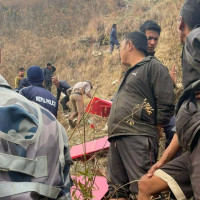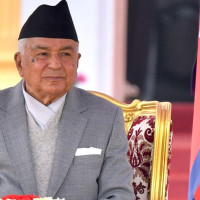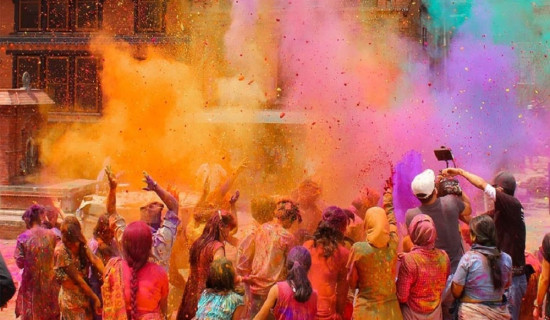- Tuesday, 3 March 2026
Space Of Press Being Infringed
In recent days, the world has been witnessing various dictatorial events unfolding in the name of democracy. Wars are being waged when peace should be the priority of all global leaders. The supply of weapons under the pretext of “protecting people in the area and stopping terrorism” has led to more killings of innocent civilians and has fuelled the rise of terrorist groups determined to seek revenge for what they perceive as injustice. Nepali journalists have recently exposed a series of crimes implicating political leaders and parties who, historically, emerged with the promise to eliminate corruption and lead Nepal toward a more democratic future. There has been a strong backlash, especially as prominent figures have been accused and named in these investigations.
It is essential to maintain a clear distinction between the right to privacy of ordinary citizens and that of public figures. The latter assume positions of responsibility and are accountable to the people. Therefore, the press must examine any anomalies or misconduct they may commit. Curtailing the press, as well as art and culture that seek to expose corruption among public personalities, is contrary to the philosophy of democracy and the spirit of the constitution. At the same time, if public figures are being unfairly shamed, ridiculed, or falsely accused, they have every right to seek justice through proper processes via the Press Council and the courts.
Right to privacy
Recently, Freedom Forum Nepal organised an interaction on the status of freedom of expression and press freedom and the way forward, in collaboration with the Ministry of Communications and Information Technology in Kathmandu. During the event, journalists, activists, and filmmakers voiced their concern that, slowly and silently, something unexpected was happening in the country. Although the constitution guarantees freedom of the press and freedom of expression, there have been numerous instances when the government, citing reasons such as protecting the sovereignty of the country, upholding the right to privacy, or addressing cybercrime, has imposed restrictions on publishing cartoons, songs, and films. The government has also asked online and other media outlets to remove material that had already been published.
In fact, over the past month, the Kathmandu Valley has witnessed a series of interactions and conferences where the issue of press freedom and freedom of expression has been actively discussed. While there is a prevailing perception among the public that the Nepali press is not always acting responsibly — raising questions about its conduct — the government has increasingly tried to impose restrictions, particularly concerning the right to privacy. However, it must be remembered that if the press cannot function freely to uncover the truth and inform the public, democracy itself will be under threat.
Taranath Dahal, Executive Director of Freedom Forum stressed the need for policymakers to review the Media Council Bill and the Information Technology and Cyber Security Bill currently under consideration in the Federal Parliament. He cautioned that these bills contain provisions that could seriously restrict press freedom and freedom of expression. Recently, there has been a growing sentiment in Nepal that these fundamental rights are not being upheld as they should be, despite Nepal’s commitments to various international human rights conventions.
Other participants shared insights about the current laws protecting freedom of the press and expression and how these laws have at times been both effectively applied and misused. They stressed the need to improve the legal frameworks governing media and freedom of expression in Nepal. Several suggestions have been made to strengthen protections, like drafting a framework law so that laws related to free expression and press freedom align with Nepal’s international commitments and amending existing legislation accordingly. It has been widely realised to draft an umbrella communications law and repeal outdated regulations, guarantee freedom of expression and press freedom across both online and offline platforms and develop a system rooted in self-regulation, editorial independence, autonomy and pluralism.
Govt as facilitators
It is imperative to address the matter of media and communications at the federal, provincial, and local levels. All government tiers should act as facilitators rather than restrictors. Formulating laws that protect and promote artistic expression and accelerating the drafting of legislation related to contempt of court to prevent misuse are equally important.
As civic space shrinks worldwide — even in many established democracies — there is a troubling increase in harassment and violence against journalists. A rising trend of authoritarian leadership has led to more censorship and surveillance. Governments frequently resort to laws concerning cybercrime, sedition, and defamation to suppress criticism, particularly criticism directed at public figures who must remain accountable to the people. It is, therefore, vital to ensure that freedom of the press and freedom of expression are preserved and the country can continue moving forward in the spirit of a true Federal Republic.
(Sharma is a senior journalist and women’s rights advocate. namrata1964@yahoo.com or on X @NamrataSharmaP.)
















